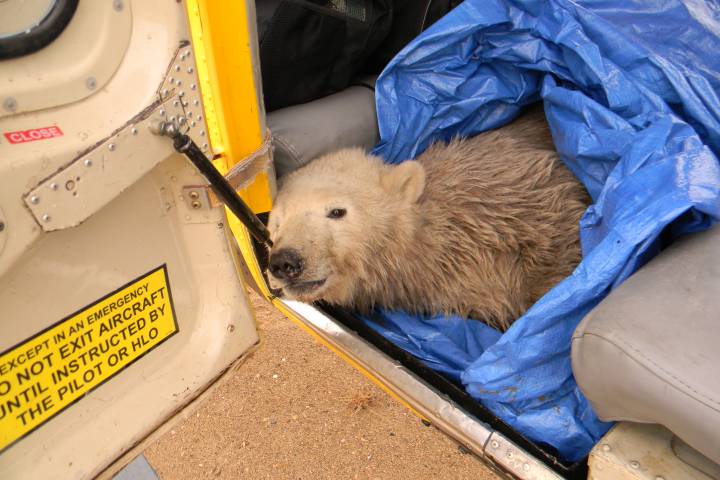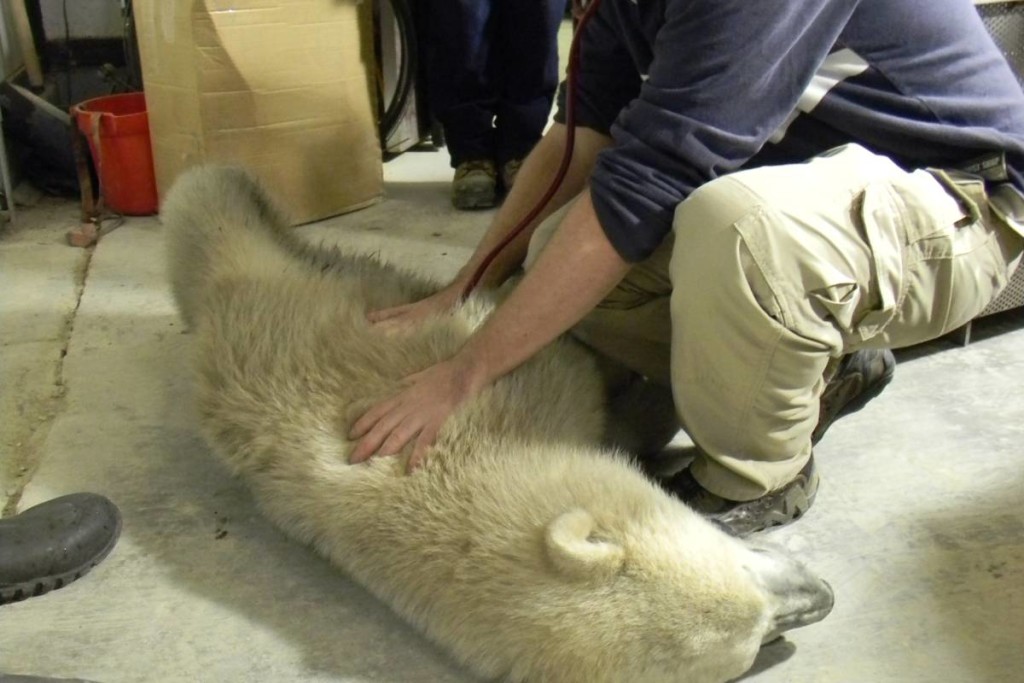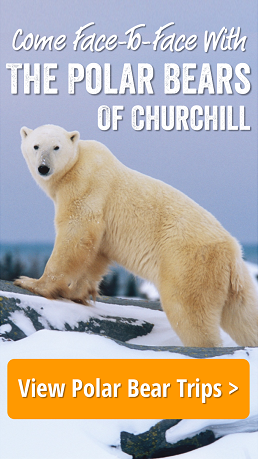Are Wolves Preying on Polar Bears in Manitoba?
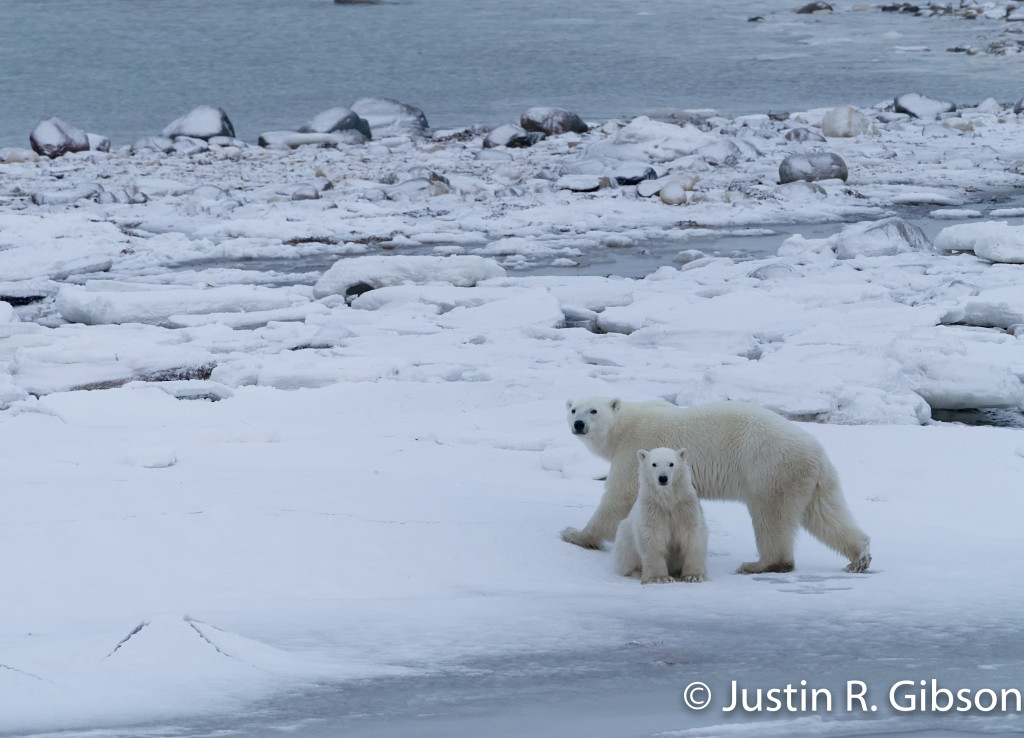
Polar bear sow and cub wearily survey their surroundings constantly aware of predators. Justin Gibson photo.
A Manitoba Conservation official has found evidence that wolves near Hudson Bay have learned to hunt polar bear cubs.
Polar bears are generally considered the top of the Arctic food chain, but recently a pack of wolves apparently distracted a mother bear long enough to take her cub in the Kaskatamagan Wildlife Management Area in northeastern Manitoba, said Daryll Hedman, the wildlife manager for the province’s northeast region.
“This is the first strong indirect evidence I’ve ever seen of wolves preying on a polar bear cub. They probably killed the cub and dragged it away.” reported Hedman.
For four years now Hedman has been conducting polar bear maternity den emergence surveys in the region by helicopter. These wolf and polar bear encounters have been somewhat lore and something he has not witnessed firsthand. This past March Hedman saw evidence of such an attack for the first time. Now the unreal became real. “This doesn’t happen often. It still seems to be a very rare event.” stated Hedman.
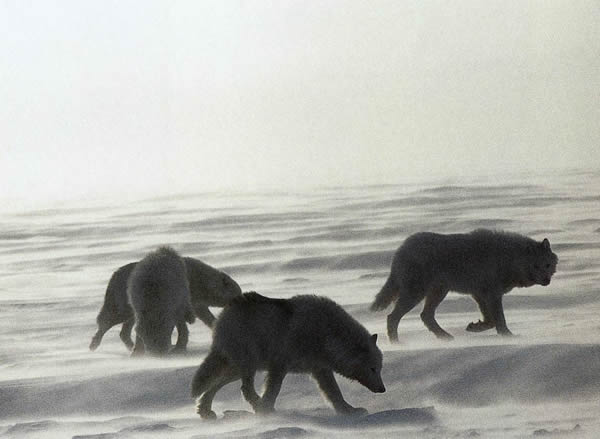
Arctic wolfpack searching for a meal on the ice. Carnivoraforum.com photo.
“We’ve had reports of wolves predating on polar bears [the cubs] in the past by lodges and First Nations, mostly when the polar bears are coming off the ice onto land at the end of July,” said Hedman.
“In our most recent report, a First Nations trapper reported to me what looked like a polar bear-wolf encounter” in the wildlife management area east of York Factory on the Hayes River, which runs along the Hudson Bay shoreline to the Ontario border.
“He said a single adult polar bear track was leaving the den site. About five days later, we were doing our survey by helicopter. We landed [at that site] and there was definitely evidence of polar bear and wolf tracks.”
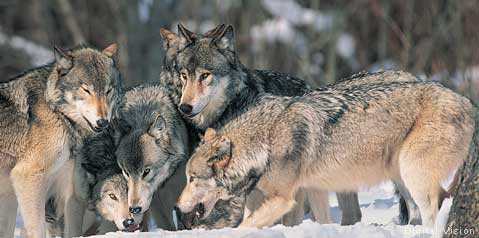
Wolf pack working together. Digital Vision photo.
Members of a wolf pack get a mother’s attention, then the rest of the pack grabs her cub, Daryll Hedman says. (Cameron MacIntosh/CBC)
This most recent attack that Hedman saw evidence of was pretty conclusive and pointed towards a sure attack of a polar bear by wolves.
“There was also a single cub track leading up to the wolf encounter, and after that, only the single track of a female polar bear going out to the ice of western Hudson Bay,” stated Hedman. “The polar bear cub was probably four or five months old”. he added.
“It happened right on the tidal flats of Hudson Bay,” he said, noting the area contains a pretty healthy population of moose, the main prey species for wolves along the Hudson Bay coast in Kaskatamagan.
“I’ve had reports from people who have actually seen this sort of thing before,” he said.
“What usually happens is the sow polar bear can’t react quickly enough when the wolves are in a pack. Some of the wolves are getting her attention and the others go for the cub.”
Scientists and researchers studying these animals have also documented wolves hunting polar bear cubs.
“In 1983, the late Malcolm Ramsay and I found evidence of a pack of wolves in the Churchill denning area that had learned to kill polar bear cubs when they were on their way to the sea ice from their maternity dens,” polar bear specialist Ian Stirling wrote in his book Polar Bears: The Natural History of a Threatened Species.
“Where the polar bears den, there are no wolves, but once they leave the dens and get closer to the coast, they might encounter wolves.”
(Excerpts and quotes supplied by Martin Zelig for CBC News)
Comments on this story are moderated according to our Submission Guidelines. Comments a







